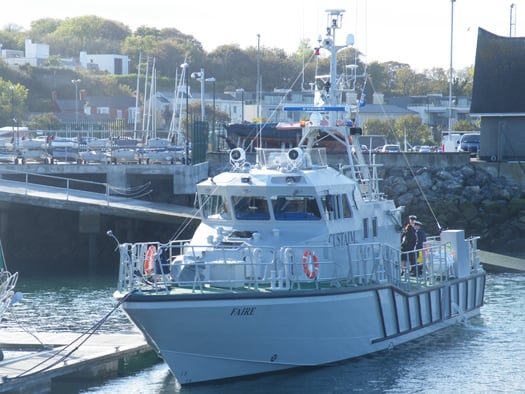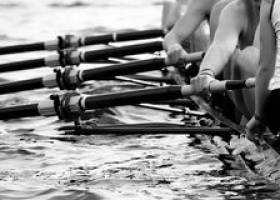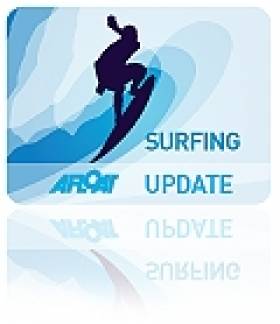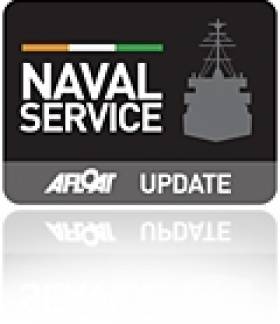Displaying items by tag: drugs
Fisa Bans All But Six Russian Rowers From Olympics
#Rowing: Only six Russia competitors have been cleared by Fisa, the governing body of rowing, to compete at the Olympic Games. Twenty were ruled ineligible as records were scrutinised in line with the International Olympic Committee’s guidelines on drug testing. One Irish crew, the lightweight women’s double, is affected. The Russia crew of Alena Statagina and Anastasiia Ianina will not be allowed participate, and their place will be offered to Italy.
The full Fisa statement reads:
The FISA Executive Committee has made a final decision related to Russian participation for rowing in Rio 2016 in accordance with the IOC Executive Board’s decision, point 2.3.
IOC Decision, point 2.3 – “IFs should carry out an individual analysis of each athlete’s anti-doping record, taking into account only reliable adequate international tests and the specificities of the athlete’s sport and its rules, in order to ensure a level playing field”
Russia has qualified five boats and entered 26 rowers and two coxswains for the Olympic Games in Rio de Janeiro. The athletes’ names were entered by the Russian Olympic Committee (ROC) by the deadline of 18 July 2016. Testing information collected from FISA, WADA, the Russian Rowing Federation (RRF), RUSADA and UK Anti-Doping shows that a total of 1679 blood and/or urine tests were carried out between 2011 and June 2016 on all Russian rowers. For the Russian rowers entered for Rio, 547 blood and urine tests were conducted since 2011. None of the 28 athletes entered on 18 July have tested positive in the last five years.All of these tests are fully documented in the WADA online documentation tool called ADAMS.
However, WADA’s Independent Person (IP) report reveals that the Moscow Laboratory was under the control of the Deputy Minister of Sport and was using the Disappearing Positive Methodology scheme to manipulate test results. It also states that the IP has “only skimmed the surface of the extensive data available.” Therefore, the FISA Executive Committee reviewed each entered Russian rower in order to assess the adequacy and reliability of their “international” testing (the analysis of the samples performed at a WADA accredited lab other than Moscow), taking into account the specificities of the sport of Rowing.
IOC Decision, point 4. “The IOC will accept an entry by the ROC only if the athlete’s IF is satisfied that the evidence provided meets conditions 2 and 3 above, and if it is upheld by an expert from the CAS list of arbitrators appointed by an ICAS Member”
The FISA Executive Committee, due to the manipulation of the Moscow Laboratory tests, has determined, based on the assessment of independent testing of all rowers, the following will be permitted to enter:
CHAUKIN, Aleksandr
EFREMENKO, Georgy
KOSOV, Artem
MORGACHEV, Nikita
RYABCEV, Vladislav
ZARUTSKIY, Anton
The remaining 17 entered rowers and two coxswains (besides the three rowers revealed yesterday) are not at all considered to have participated in doping, but do not meet the conditions established by the IOC in their decision of 24 July 2016 for participation in the Rio 2016 Olympic Games.
Effect of this decision
The effect of this decision is that Russia has six remaining eligible rowers - one lightweight and five open weight men - for competition in Rio 2016.
Therefore, four Russian boats (LM4-, LW2x, M8+ and W8+) will be withdrawn from participation in the Games and will be attributed to the next placing crews at the 2016 Final Olympic Qualification Regatta in Lucerne, Switzerland, as follows:
LM4- to Greece, the Hellenic Rowing Federation
M8+ to the Italian Rowing Federation
W8+ to the Australian Rowing Federation
And in the 2016 European Continental Qualification Regatta in Lucerne, Switzerland:
LW2x to the Italian Rowing Federation
Russia has the possibility to form a men’s four (M4-) with the eligible six rowers for competition in Rio 2016. We await the Russian Rowing Federation’s decision on this possibility.
Any issues with the Russian participation at the Paralympic Games will be dealt with at a later date.
Surfing's World Body to Roll Out Drug Screening
#SURFING - The world governing body for surfing is set to roll out drug screening for competitors and officials at its sanctioned events this year.
As The Guardian reports, the move by the Association of Surfing Professionals (ASP) comes after the drug-related death of top surfer Andy Irons in November 2010.
The former three time world champion was found to have died from a hart attack combined with "acute mixed drug ingestion".
Irish surfer Gerry Fitzgerald told the paper that drug-taking is "not sustainable" for top-level surfers on the circuit. "Athletes are training hard, the way the contests are now, it will catch up with you," he said.
Testing for performance-enhancing and recreational drugs is already carried out at a number of professional events in the UK and Ireland, according to This Is Cornwall.
Matthew Knight of the steering committee for the British Surf Championships welcomed the change, admitting that surfing had been a "dinosaur" in its approach to drug testing and needed to catch up with other sports.
However some concerns have been raised that the move could damage surfing's credibility as an 'underground' phenomenon.
"Part of its appeal is that it is counter-cultural, marginal and in some way subversive and that's where the association with drugs comes in, whether real or mythic," surfer and author Andy Martin told The Guardian. "How mainstream can surfing be before losing its soul?"
New TV Documentary: 'Smugglers'
The documentary also reveals the case of a 62-year-old retired taxi driver from Birmingham caught with 5kg of cocaine concealed behind the engine of his car.
New series of 'Customs' on RTÉ One
The second series of 'Customs' returns to television screens next Wednesday (17 November) on RTÉ One at 8.30pm. The Revenue Commissioners customs cutter, RCC Faire, which officially entered service in October of last year, will feature in the new series.

RCC Faire at Howth Harbour on the day of her naming ceremony on 16 October 2009. Photo: Jehan Ashmore / ShipSNAPS
To be broadcast in six-parts, the series will provide unprecedented access into the daily operations of the custom officers.'Customs' examines how the country is dealing with increasing levels of illegally imported materials and substances.
Custom officers found shipments of drugs in the strangest places: a doll's house, picture frames, the bottom of a massive cargo ship. In addition the seizure of contraband cigarettes, vehicles, large
quantities of money and the more bizarre discovery of a Colombian snake.
New series of 'Customs' on RTÉ One
To be broadcast in six-parts, the series will provide unprecedented access into the daily operations of the custom officers.'Customs' examines how the country is dealing with increasing levels of illegally imported materials and substances.
Custom officers found shipments of drugs in the strangest places: a doll's house,picture frames, the bottom of a massive cargo ship. In addition the seizure of contraband cigarettes, vehicles, large quantities of money and the more bizarre discovery of a Colombian snake.


































































